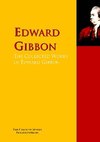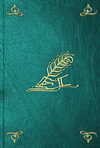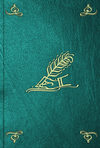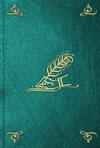Loe raamatut: «Private Letters of Edward Gibbon (1753-1794) Volume 1 (of 2)», lehekülg 18
189.
To J. B. Holroyd, Esq
Heads of a Convention between Mr. Newton and Mr. Gibbon in Love Lane, March the 11th, 1774.
Agreed —
1. That a proposal of Arbitration such as was wished for should be accepted when offered.
2. That Mr. Way, to whom it was made, is the proper channel through which it should be answered.
3. That Mr. Palmer, a man of very fair character, assisted by two gentlemen of the Law, are very proper Arbitrators.
4. That from Parole and written evidence, they should determine whether the small tythes were warranted, and in case they were, what abatement should be made to the purchaser for a doubtfull or imperfect Title to them.
5. As it may be apprehended that Lovegrove, if their Decision was unfavourable to him, might direct his quibbles to some of the many other inexhaustible resources of the Law, it is submitted to Mr. H., whether the whole business, with regard to the general title, great tythes, time and obligation to compleating the purchase, had not better be left to the final award of three Gentlemen of character, than litigated for half a Century in Chancery.
6. As such an Arbitration will demand several important preliminaries, that an early meeting should be proposed to Messieurs Lovegrove and Matthews, where they may confer with Messieurs Newton, Gibbon, and perhaps Holroyd.
7. That the letter, a copy of which is enclosed, should be written by next Tuesday's post to Mr. Way if approved of. Judge and Alter.
190.
To J. B. Holroyd, Esq
Boodle's, Wednesday Evening, March 16th, 1774.
Your Epistle of Sunday was not received till Monday night 12 o'Clock, Consequently your Commissions ceased of Course.
*I was this morning with Newton. He was positive that the attempt to settle the preliminaries of Arbitration by Letters, would lead us on till the middle of the Summer, and that a Meeting was the only practicable Measure. I acquiesced, and we blended his Epistle and yours into one, which goes by this post. If you can contrive to suit to it your Oxford journey, your presence at the Meeting would be received as the descent of a Guardian Angel.
THE BOSTON PORT BILL.
Very little that is satisfactory has transpired of America. On Monday Lord N[orth] moved for leave to bring in a Bill to remove the Customs and Courts of Justice from Boston to New Salem; a step so detrimental to the former town, as must soon reduce it to your own terms; and yet of so mild an appearance, that it was agreed to, without a division, and almost without a debate.226 Something more is, however, intended, and a Committee is appointed to inquire into the general state of America. But administration keep their Secret as well as that of Free Masonry, and, as Coxe profanely suggests, for the same reason.
Don't you remember that in our Pantheon Walks we admired the modest beauty of Mrs. Horneck?227 Eh bien! alas! she is * * *. You ask me with whom? with Scawen, of the Guards; both the Storers, Hodges, a Steward of Lady Albemarle's, her first love, and half the town besides. A Meeting of Horneck's friends assembled about a Week ago, to consult of the best method of acquainting him with his frontal honours. Edmund Burke was named as the Orator, and communicated the transaction in a most Eloquent speech.
N.B.– The same Lady, who, at public dinners, appeared to have the most delicate Appetite, was accustomed, in her own Apartment, to feast on pork steaks and sausages, and to swill Porter till she was dead drunk. Horneck is abused by the Albemarle family, has been bullied by Storer, and can prove himself a Cornuto, to the satisfaction of every one but a Court of Justice. O Rare Matrimony!*
191.
To J. B. Holroyd, Esq
March 29th, 1774.
Lenborough.– Last Sunday morning I saw R. Way in Bentinck Street. He had seen Lovegrove both in country and in Town, but it seems very difficult to make any thing of him. Way pressed him to call upon me or Newton to settle the preliminaries of the Arbitration. He replied, that without Matthews he could do nothing. Matthews on the other hand, when Newton wrote to him, said, that he could be of no use in town till the conveyances were ready for signing. Such damned shuffling. Way promised to call on Palmer, who in general has accepted the office of Arbitrator, and get him to write to Lovegrove to convince him of the necessity of settling things previously as to the object of the Arbitration, and penalty of the parties. On his return into the country he will see Lovegrove and Matthews, and assure them how strongly I appeared resolved for chancery, if I found any farther delay or difficulty. Would it were over!
Beriton.– Mrs. Lee, on receiving Andrews's letter, wrote to him to desire he would send it up to me (as it seemed written without my knowledge), and to press that I would disclose my real intention about repairs, maintaining that according to Law, Honor and my former declarations, I am obliged to fulfil them, hinting however, that if I can settle the business with Winton, Mrs. Lee desires to hear no more about it. On that ground I can direct a most excellent letter to Hugonin, which may tame the monster without making it desperate.
*America.– Had I wrote Saturday night, as I once intended, Fire and Sword, Oaths of Allegiance and high treason tryed in England, in consequence of the refusal, would have formed my letter. Lrd. North, however, opened a most lenient prescription last night; and the utmost attempts towards a new settlement seemed to be no more than investing the Governor with a greater share of executive power, nomination of civil officers, (Judges, however, for life,) and some regulations of Juries. The Boston Port bill passed the Lords last night; some lively conversation, but no division.
Bentinck-street.– Rose Fuller the Great was against the Boston port Bill, and against his niece's going to Boodle's masquerade. He was laughed at in the first instance, but succeeded in the second. Sappho and Fanny very indifferent (as Mama says) about going. They seem of a different opinion.* This morning d'Eyverdun arrived: When you consider him, morning walks, dinners, Evenings, the general idleness of town, and my peculiar employment, you must not swear, if I am not very punctual. Adieu. Duty to My Lady, and love to Maria. I hope the latter is quite well; for Miss Huff insinuated somewhat to the contrary.
192.
To J. B. Holroyd, Esq
April 2nd, 1774.
Dear H.,
*You owe me a letter; so this extra goes only to acquaint you with a misfortune that has just happened to poor Clarke, and which he really considers as such, the loss of a very excellent father. The blow was sudden; a thin little Man, as abstemious as a hermit, was destroyed by a stroke of Apoplexy in his Coach, as he was going out to dinner. He appeared perfectly well, and only two days before had very good-naturedly dined with us at a Tavern, a thing he had not done for many years before. I am the only person that Clarke wishes to see, except his own family; and I pass a great part of the day. A line from you would be kindly received.
GREAT NEWS FROM INDIA.
Great news, you see, from India.228 Tanjore – four hundred thousand pounds to the Company; Sujah Dowlah – 600,000.* Tygor Roch229 is certainly got off from the Cape to Mauritius in a French ship. Adieu.
193.
To his Stepmother
London, April 2nd, 1774.
Dear Madam,
My Bucks affair is not settled, and I much fear that it will occasion me more trouble than I at first expected. Mr. Lovegrove's difficulty – not to call it by a harsher name – turns on a point of fact not of law, and is so very unreasonable that he must be condemned either in the more eligible way of arbitration (which I hope will be settled) or in the Court of Chancery, should I be reduced to the sad necessity of calling it to my aid. The uneasy suspense that it has kept and will keep me in for some time, defers my intended visit to Bath, and disappoints Mrs. Porten, as well as myself, of a pleasure which we had assured ourselves of enjoying.
I am at present engaging in two other tasks of a very different nature, the receiving one friend and the comforting another. d'Eyverdun arrived in Bentinck Street last Tuesday, and will I believe go abroad again in about a month with Lord Middleton.230 I dined with him to-day at Tommy Townshend's,231 his pupil's guardian. It's an unworthy office for him; but Lord M. appears a very tame bear, and if we can fix a quiet annuity, he may after this Tour enjoy ease and independence for the rest of his life. Upon recollection this paragraph must seem very unintelligible to you, as I do not believe that I mentioned to you, his having been forced to quit Lord C[hesterfield], by the little peer's strange behaviour, the uncertainty that he could be of any use to him or to himself, &c.
HIS FRIEND GODFREY CLARKE.
My other occupation, which claims at present the far greater part of my time, is attending my poor friend Clarke, who has just lost a very excellent father by a very sudden and terrible stroke. The old gentleman, who was perfectly well, died of a stroke of apoplexy in his coach as he was going out to dinner. Clarke feels it severely, and as he seems pleased with my company, I seldom leave him, except when he goes to his sister.
Is not Mr. Eliot at Bath? How does he do at present? Is Mrs. E. with him? Do they think of coming to town? Be so good as to say everything proper in my name, and
Believe me, Dear Madam,Most truly yours,E. G.
194.
To J. B. Holroyd, Esq
April 13th, 1774.
Dear H.,
*At length I am a little more at liberty. Clarke went out of town this morning. Instead of going directly into Derbyshire, where he would have been overwhelmed with visits, &c. he has taken his Sister, brother, and aunts, to a little Villa near Farnham, in which he has the happiness of having no neighbourhood. If my esteem and friendship for Godfrey had been capable of any addition, it would have been very much encreased by the manner in which he felt and lamented his father's death.* Incredible as it sounds to the generality of sons, and as it ought to sound to most fathers, he considered the old Gentleman as a friend. *He is now in very different circumstances than before; instead of an easy and ample allowance, he has taken possession of a great Estate, with low rents and high incumbrances. I hope the one may make amends for the other: under your conduct I am sure they would, and I have freely offered him your assistance, in case he should wish to apply for it.
In the mean time I must not forget my own affairs, which seem to be covered with inextricable perplexity. R. Way, as I mentioned about a Century ago, promised to see Lovegrove and his Attorney, and to oil the wheels of the Arbitration. As yet I have not heard from him. I have some thoughts of writing myself to the Jockey, stating the various steps of the affair, and offering him, with polite firmness, the immediate choice of Chancery or Arbitration.
For the time, however, I forget all these difficulties, in the present enjoyment of Deyverdun's Company; and I glory in thinking, that, although my house is small, it is just of a sufficient size to hold my real friends, male and female; among the latter My Lady holds the very first place.*
Apropos of My Lady, Harry Hobart the other day gave me a very pleasing hint, which he received from his wife. If there is any foundation for it, I sincerely congratulate you.
*We are all quiet. – American business is suspended, and almost forgot. The other day we had a brisk report of a Spanish War.232 It was said they had taken one of the Leeward Islands. It since turns out that we are the Invaders, but the invasion is trifling.* Batt and Sir John not returned. Are you alone? I have received another dozen of handkerchiefs, and you, by this time, have got your books and silver spoons, which Caplin has sent by the coach. Adieu.
*Bien obligé non (at present) for your invitation. I wish My Lady and you would come up to our Masquerade the 3rd of May.233 The finest thing ever seen. We sup in a transparent temple that costs £450.*
195.
To J. B. Holroyd, Esq
April 21st, 1774.
Dear H.,
IN VELVET AND RUFFLES.
*I begin to flag, and though you already reproach me as a bad Correspondent, I much fear that I shall every week become a more hardened Sinner. Besides the occasional obstructions of Clarke and Deyverdun, I must entreat you to consider, with your usual candour, 1. The aversion to Epistolary Conversation, which it has pleased the Demon to implant in my nature. 2. That I am a very fine Gentleman, a Subscriber to the Masquerade, where you and My Lady ought to come, and am now writing at Boodle's, in a fine Velvet Coat, with ruffles of My Lady's chusing, &c.234 3. That the aforesaid fine Gentleman is likewise a Historian; and, in truth, when I am writing a page, I not only think it a sufficient reason of delay, but even consider myself as writing to you, and that much more to the purpose than if I were sending you the tittle tattle of the town, of which indeed there is none stirring. With regard to America, the Minister seems moderate, and the House obedient.
Hugonin's last letter, by some very unaccountable accident, had never reached me; so that yours, in every instance, amazed me. I immediately wrote him groans and approbation. Winton, however, gives me very little uneasiness. I see that he is a bully, and that I have a stick. But the cursed business of Lenborough, in the midst of Study, Dissipation, and friendship, at times almost distracts me.* R. Way seems to have done nothing with the Jockey, (who indeed is as strange as Winton himself, singular luck enough I have had) nor have I yet ventured to cross the Rubicon by writing to him. I wish your journey here and into Oxfordshire was to take place soon, and yet I hardly know what you could do for me. *I am surely in a worse condition than before I sold the Estate, and what distresses me is, that His ego nec metas rerum, nec tempora pono.
Both Deyverdun and Clarke wish to be remembered to you. The former, who has more taste for the Country than – ,235 could wish to visit you, but he sets out in a few days for the Continent with Lord M[iddleton].* Your letter for the latter was immediately mentioned and very kindly received. He is now at Aldershot with his family, and on this occasion only I write to him almost every post, as I am this moment preparing to do. Therefore Adieu.
E. G.
196.
To his Stepmother
Bentinck Street, April 23rd, 1774.
Dear Madam,
When I already began to chide my own laziness, a little gentleman from Bath brought me a very elegant proof of your kind attention to me. The little man himself I could not see, as I happened to be abroad twice when he called upon me; but I had the pleasure of hearing through him that Mr. Eliot was quite or almost recovered. I beg you would assure him and Mrs. Eliot how much I rejoice in the news.
Clarke has now been at his house near Farnham some days. Next week he is obliged to visit town on some business, and expresses a violent intention of carrying me down with him. The pleasure of being of service to an afflicted friend, may make even the country agreeable. In that case I should leave Deyverdun in possession of Bentinck Street, though I should grumble at giving up any part of his short stay.
I have likewise seen another heir, younger and much more cheerful than Clarke, though extremely decent, I mean Sir Harry Fetherstone.236 At present everything carries the appearance of sobriety and economy. The Baronet, instead of flying to Paris and Rome, returns to his college at Oxford, and even the house at Whitehall is to be left. Lady Fetherstone talked to me a great deal about you. Do you correspond with her?
BOODLE'S MASQUERADE.
Our attention is now very much taken up with a very grand Masquerade, which Boodle's is going to give at the Pantheon. We have a great deal of money and consequently of taste. Flying bridges, transparent temples and eighteen thousand lamps in the Dome are the general subject of conversation. For my own part I subscribe, but am very indifferent about it. A few friends and a great many books may entertain me, but I think fifteen hundred people the worst company in the world.
I am still in very perplexing suspence about Bucks.
Adieu, Dear Madam,Most truly yours,E. Gibbon.
197.
To J. B. Holroyd, Esq
May 4th, 1774.
Dear H.,
Most sincerely do I condole with you on the effects of Fanaticism. That furious principle which has sometimes overturned Nations has in this instance indeed been contented with unsettling the reason of a Cook: but the domestic Calamity must have been attended with very unpleasant circumstances, and I shall think it a very happy Catastrophe when the poor Wretch is safely and quietly lodged in Bedlam.
198.
To J. B. Holroyd, Esq
May 4th, 1774.
*Last night was the Triumph of Boodle's. Our Masquerade cost two thousand Guineas; a sum that might have fertilized a Province, (I speak in your own style,) vanished in a few hours, but not without leaving behind it the fame of the most splendid and elegant Fête that was perhaps ever given in a seat of the Arts and Opulence. It would be as difficult to describe the magnificence of the Scene, as it would be easy to record the humour of the night. The one was above, the other below, all relation. I left the Pantheon about five this morning, rose at ten, took a good Walk, and returned home to a more rational entertainment of Batt, Sir John [Russel], and Lascelles, who dined with me. They have left me this moment; and were I to enumerate the things said of Sheffield, it would form a much longer letter than I have any inclination to write. Let it suffice, that Sir John means to pass in Sussex the interval of the two terms. Every thing, in a word, goes on very pleasantly, except the terrestrial business of Lenborough. Last Saturday se'nnight I wrote to Richard, to press him to see Lovegrove, and urge the Arbitration. He has not condescended to answer me. All is a dead Calm, sometimes more fatal than a storm. For God's sake send me Advice. I seem to be in a much worse situation than before I agreed with him.*
Adieu. My Lady's and Maria's healths were drank unanimously to-day. Deyverdun sets off for Lausanne in about ten or twelve days with Lord Middleton, Tommy Townshend's Nephew.
199.
To his Stepmother
Boodle's, May 24th, 1774.
Dear Madam,
Instead of censuring my indolence (though you might as usual do it with very just reason), listen to a tale of wonders.
MISS HESTER GIBBON.
On Sunday last, when my servant came to the place where I had dined, with the carriage, he told me that Mrs. Gibbon was come to town, had sent to Bentinck Street and wished to see me that evening. It appeared somewhat singular that you should have run up to town without giving me any notice, and somewhat unkind that you should not have made Bentinck Street your Inn. – But, *guess my surprize when a further enquiry discovered to me that it was not Mrs. Gibbon of Bath, but Mrs. Gibbon of Northamptonshire. I immediately went to Surrey Street where she lodged, but though it was no more than half an hour after nine, the Saint had finished her evening devotions and was already retired to rest. Yesterday morning (by appointment) I breakfasted with her at eight o'clock, dined with her to-day at two in Newman Street, and am just returned from setting down. She is in truth a very great curiosity, her dress and figure exceed everything we had at the Masquerade. Her language and ideas belong to the last century. However, in point of religion she was rational, that is to say silent. I do not believe that she asked a single question or said the least thing concerning it. To me she behaved with great cordiality, and in her way expressed a great regard.* In a light of interest, however, her regard is of little consequence to me; if I may judge from her appearance her life is a better one than mine. Please to communicate a proper part of this intelligence to our Cornish friends. She expressed the utmost disappointment at not finding Mrs. Eliot and her children in town. I am sorry to hear that we have less chance than ever of seeing them since Hams, Cheeses and my little friend John237 are gone down to Bath.
My knowledge of Mr. Eliot's disinclination to writing has prevented me from giving him the trouble of an answer. My despair of equalling the elegant raillery of the Goddess has kept me silent on that quarter likewise. Lazyness you will say never wants an excuse.
As the Summer advances (and sorry I am to say that it advances much faster than my Bucks business), I now fear that Mrs. P. and myself must defer our Bath journey to the latter season of the Year. There would however be a way which would bring us together much sooner. You have been long and impatiently expected at Sheffield Place, where I propose to pass at least the month of July. From Charles Street to Bentinck Street it is a pleasant drive; from Bentinck Street to Sheffield Place little more than a morning walk. Mrs. P. tells me that she has just wrote to you. She ought to go to a Masquerade once a year. Did you think her such a girl?
I am, Dear Madam,Most truly yours,E. G.
The Boston Port Bill was brought in by Lord North on March 14, 1774, and received the royal assent on the 31st. It was followed on March 28 by the Bill for regulating the government of Massachusetts Bay. A third Bill was introduced (April 15) for "the impartial administration of justice;" it provided for the transfer of persons accused of being concerned in the late riots for trial in England. All three Bills were passed during the session. Governor Hutchinson was superseded by General Gage, who was sent out with four regiments.
[Закрыть]
Mrs. Horneck, wife of Captain Charles Horneck, Goldsmith's "Captain-in-Lace" ("Verses in Reply to an Invitation to Dinner at Dr. Baker's: " Works, ed. Cunningham, vol. i. p. 110), was one of the most abandoned women of the time. She eloped with her husband's brother-officer, Captain Scawen, who had in the previous year fought a celebrated duel with "Fighting Fitzgerald."
[Закрыть]
In 1773, the East India Company at Madras and the Nabob of the Carnatic were allies: the Rajah of Tanjore, though nominally an ally, was known to be in correspondence with Hyder Ali and the Mahrattas. The Company agreed for a sum of money to reduce the Rajah and transfer his dominions to the Nabob. The bargain was fulfilled, and the news, transmitted to the Board of Directors, reached London, March 26, 1774. In October, 1773, Sujah Dowlah, Nawab of Oude, offered Warren Hastings a large sum of money if the Company would conquer and transfer to him the Rohilla country, north of his dominions and east of the Ganges. At the same time the provinces of Corah and Allahabad were sold to Sujah Dowlah by the Company.
[Закрыть]
Captain David Roche sailed with his wife on board the Vansittart, East Indiaman, in May, 1773, in order to take up an appointment in the Company's service at Bombay. On the voyage he quarrelled with Lieutenant James Ferguson, whom he killed at the Cape in September, 1773. It was alleged that Roche had treacherously assassinated his antagonist; but, on his trial at Cape Town, it was proved that Ferguson was the assailant, and that Roche had killed him in self-defence. Strong feeling was aroused about the affair, because Roche was wrongly identified with a notorious duellist of the day. The governor of the Cape obtained a passage for Roche in a French frigate to Mauritius, whence he reached Bombay. On arrival there, he was arrested and sent home to England. Examined before the Privy Council on July 10, 1775, he was committed to Newgate. A special commission was issued (August 5) to try him, and at the Old Bailey, on December 11, 1775, he was again acquitted of the charge of murder. (See A Plain and Circumstantial Account of the Transactions between Captain Roche and Lieut. Ferguson, etc. London, 1775.)
[Закрыть]
Lord Midleton was the son of the third Lord Midleton and his wife, Albinia, eldest daughter of the Hon. Thomas Townshend.
[Закрыть]
Thomas Townshend (1733-1800), son of the Hon. Thomas Townshend and grandson of the second Viscount Townshend, was the "Tommy Townsend" of Goldsmith's Retaliation, in which he describes Edmund Burke as —
"Though fraught with all learning, yet straining his throat,To persuade Tommy Townsend to lend him a vote." He was M.P. for Whitchurch in four successive Parliaments, and held a series of important or lucrative offices. He was created Baron Sydney in 1783, and Viscount Sydney in 1789.
[Закрыть]
This probably refers to an attempt on the part of the English to collect sugar duties at the island of Toracola (Crabb Island) near Porto Rico, and the reply of the governor of Porto Rico that the island belonged to Spain. In the Morning Chronicle for April 12, 1774, it was reported "that the Spaniards had bombarded the town of Kingston in Jamaica."
[Закрыть]
The masquerade was given at the Pantheon, by Boodle's Club.
[Закрыть]
Gibbon was always careful, if not elaborate, in his dress. George Colman the younger, in his Random Records (1830), vol. i. pp. 121, 122, describes his meeting as a boy with Gibbon and Johnson: —
"On the day I first sat down with Johnson, in his rusty brown, and his black worsteads, Gibbon was placed opposite to me in a suit of flower'd velvet, with a bag and sword." The "costume," he adds in a note, "was not extraordinary at this time, (a little overcharged, perhaps, if his person be considered,) when almost every gentleman came to dinner in full dress." "Each," he continues, "had his measured phraseology; and Johnson's famous parallel, between Dryden and Pope, might be loosely parodied, in reference to himself and Gibbon. Johnson's style was grand, and Gibbon's elegant; the stateliness of the former was sometimes pedantick, and the polish of the latter was occasionally finical. Johnson march'd to kettle-drums and trumpets; Gibbon moved to flutes and hautboys; Johnson hew'd passages through the Alps, while Gibbon levell'd walks through parks and gardens. Maul'd as I had been by Johnson, Gibbon pour'd balm upon my bruises, by condescending, once or twice, in the course of the evening, to talk with me; the great historian was light and playful, suiting his matter to the capacity of the boy; – but it was done more suá (sic); still his mannerism prevail'd; – still he tapp'd his snuff-box, – still he smirk'd, and smiled; and rounded his periods with the same air of good-breeding, as if he were conversing with men. – His mouth, mellifluous as Plato's, was a round hole, nearly in the centre of his visage."
[Закрыть]
Word erased.
[Закрыть]
Appearances proved deceitful. Amy Lyon, afterwards Emma Hamilton, became the mistress of Sir H. Featherstonhaugh at Up-Park in 1780, and was discarded by him just before the birth of her second child.
[Закрыть]
The second son of Mr. Eliot, of Port Eliot.
[Закрыть]



















